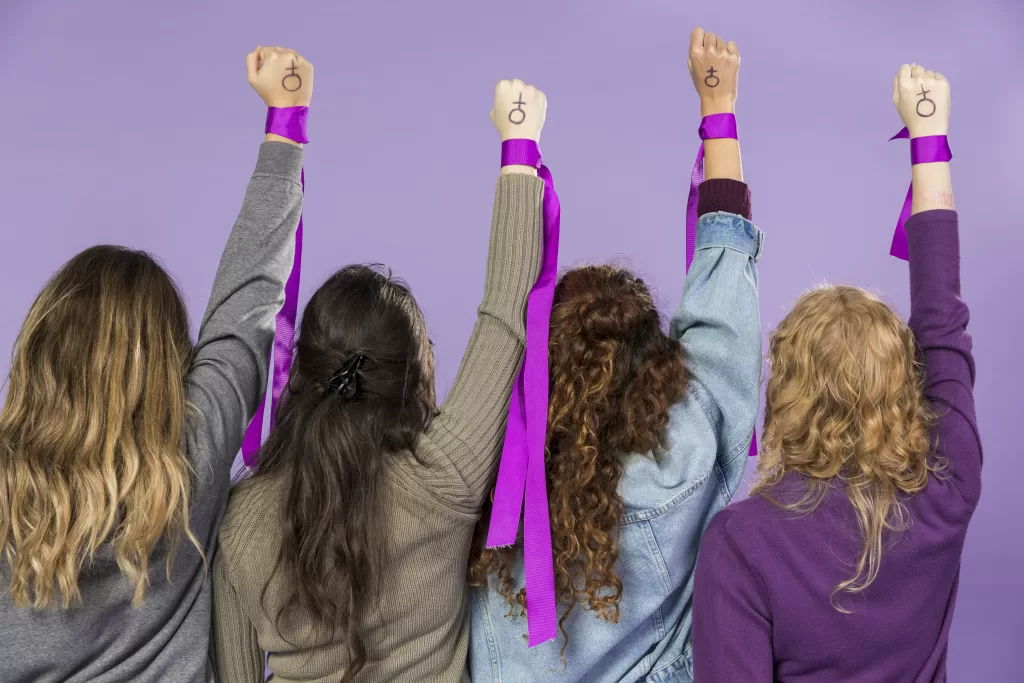Collaboration between national and international organisations is essential to advancing gender equality and women’s empowerment because it shapes policy, shapes cultural norms, and promotes positive change. The involvement of these organisations is crucial in furthering the cause of women’s rights in Pakistan, since women have historically encountered obstacles in obtaining their rights. The dynamic interaction between national and international organisations in advancing Pakistani women’s rights is examined in this article.

Large-scale change is sparked by international organisations because of their impact and worldwide reach. Women’s rights are progressing in Pakistan thanks in large part to organisations such as the United Nations (UN), UN Women, and other international non-governmental organisations.
Promoting Policy Reforms:
International organisations are essential in promoting legislative changes that uphold women’s rights and advance gender equality. These organisations call attention to legislative and policy deficiencies and urge the Pakistani government to implement measures that empower women via research, reports, and diplomatic channels.
Building Capacity and Educating:
Numerous foreign organisations fund educational efforts and capacity-building projects with the goal of improving Pakistani women’s knowledge and skill sets. This comprises courses, training sessions, and financial aid intended to enable women to take an active role in their communities and the workforce.
Financing Initiatives Focused on Women:
International organisations must provide financial support in order to carry out initiatives that have a direct influence on the lives of women. These funds are frequently allocated to projects that address the various difficulties that Pakistani women may have in the areas of healthcare, education, economic empowerment, and legal advocacy.
International Best Practises:
Through the exchange of worldwide best practises and prosperous case studies from other nations, international organisations offer invaluable perspectives on practical approaches to the advancement of women’s rights. Through the adaptation of effective strategies to the unique cultural and social environment of Pakistan, these insights aid in shaping local efforts.
National Establishments:
Local groups and non-governmental organisations (NGOs) are actively involved at the national level, collaborating closely with communities to solve the unique issues that Pakistani women confront.
Local and Community Projects:
The communities that national organisations serve frequently have strong roots in them. By means of grassroots endeavours, they tackle matters at the regional level, comprehending the distinct obstacles encountered by women across various parts of Pakistan. This localised strategy enables customised solutions that speak to the unique requirements of various communities.
Support and Advocacy for Law:
In order to help women navigate the complicated legal system and seek justice for crimes like as discrimination and gender-based violence, national organisations are essential to legal advocacy. These organisations enable women to express their legal rights by offering representation and legal aid.
Involvement with the Community:
One of the main goals of national organisations is to foster trust among communities. Through active engagement with local people, these organisations raise awareness, dispel preconceptions, and advance the advantages of gender equality. Initiatives initiated by the community have a higher chance of being accepted and producing long-lasting change.
Well-being and Mental Health:
Another important area that national organisations contribute significantly to is addressing mental health concerns. These organisations work to dispel the stigma attached to mental health problems by providing counselling, support groups, and awareness campaigns. This creates safe spaces where women may go for assistance and encouragement.
Obstacles and the Way Ahead:
Notwithstanding the great contributions made by both national and international organisations, problems still exist. Obstacles to advancement include ingrained cultural norms, bureaucratic roadblocks, and reluctance to change. Nonetheless, these groups’ cooperative efforts, in concert with local communities and the government, provide a way ahead.

In conclusion, national and international organisations play a critical role in advancing the rights of Pakistani women. Through the utilisation of worldwide proficiency, promotion of legislative modifications, and interaction with regional populace, these establishments bolster an all-encompassing and enduring strategy about gender parity. The road to women’s empowerment in Pakistan is still long, but with these organisations’ unwavering dedication and cooperation, the possibility of a fairer future seems more and more attainable.














